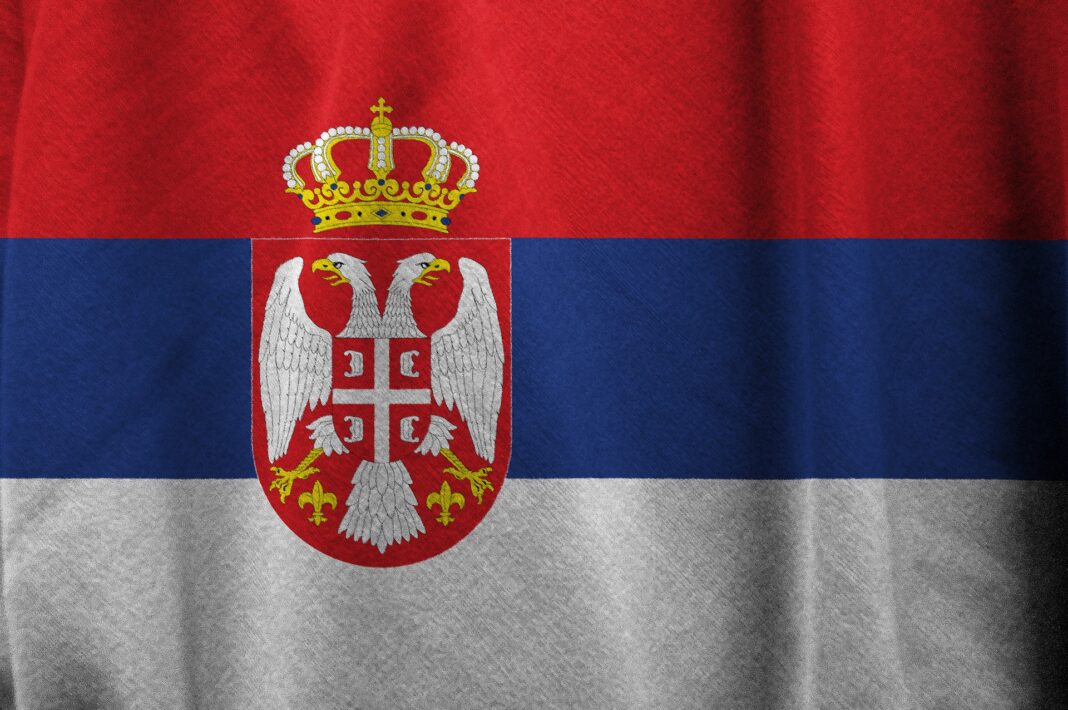In the beginning, I would like to take your readers back to the not-so-distant past. Just 15 years ago. Namely, by scheduling a public hearing on the topic of “Presentation of draft laws that are adopted to harmonize with the Act on Amendments to the Constitution of the Republic of Serbia,” the Committee for Constitutional Affairs and Legislation, on January 26, 2023. announced the completion of the procedure, which for various actors in society began as far back as 2007, when the Venice Commission adopted an opinion on the Constitution adopted in 2006. The Venice Commission, as an advisory body of the Council of Europe, concluded in 2007 that the Constitution of the Republic of Serbia had established mechanisms that enable the influence of politics on the independence of the judiciary. In the assessment of the provisions related to public prosecution, the assessment is even harsher, and the regulation of public prosecution was compared to the Soviet system of prosecution. The mentioned system is known for its strictly hierarchical structure, similar to a military hierarchy. Since that moment, the two oldest professional associations of judges and prosecutors have been campaigning to amend the Constitution.
In the EU accession process, the Republic of Serbia accepted that the constitutional framework does not guarantee the independence of the judiciary, so the Government of the Republic of Serbia, on April 27, 2016, with the adoption of the Action Plan for Chapter 23, provided for a whole series of activities to overcome the identified shortcomings. Among other things, the amendment of the Constitution in the area of the judiciary was foreseen. It is a fact that the process took longer than expected, and therefore the Government of RS adopted the revision of the Action Plan for Chapter 23 in July 2020. The deadlines were not met, but the general public’s interest in this process was not mainly expressed.
The Association of Public Prosecutors of Serbia held that the solutions must fundamentally change the organization and functioning of public prosecution. After all, the Association of Public Prosecutors has advocated for such changes for over two decades, as long as we have existed. Unfortunately, the entire process is in the course of the referendum campaign to amend the Constitution abused by political parties, and most of the citizens of the Republic of Serbia did not understand the referendum question. The amendment of the Constitution is equated with the resolution of the independence issue of “Kosovo.”
One of the reasons is the low interest of the media in reporting on the specific topic, bearing in mind that any discussion on the subject of judicial laws is by its nature professional and not particularly interesting, and the tone of sensationalism and populism was missing. The process was not supported partly due to the fact that the judiciary does not enjoy high-level public trust.
Lack of transparency negatively affects the public trust in prosecution services. The fact that the official public prosecution organization’s relationship with the media is almost non-existent has only contributed to the breakdown of trust.
This long introduction was necessary to answer the question: Do the working versions of the laws, which refer to the Public Prosecutor’s Office and the High Prosecutorial Council, bring solutions that will, in the coming period, lead to the realization of the purpose of the existence of the Prosecutor’s Office, which is the quality and more effective fight against all types of crime, the goals of which are directly related with the state’s effort to achieve quick access to justice for citizens? I will leave the answer to that question to your readers after briefly presenting the most significant changes in the working version of the Law on Public Prosecutor’s Office and the Law on the High Prosecutorial Council. Why in short? Because the Venice Commission, in its Opinion from December 2022, recognized the fact that the scope of changes in the field of public prosecution is extensive and covers a wide range of issues crucial for the functioning of public prosecution and ensuring the independence of criminal prosecution, as well as the independence of the public prosecution.
The election of all public prosecutors is out of the competence of the Government and the National Assembly, except for the Supreme Public Prosecutor. It is a fact that the category of “prominent lawyers” was introduced. The selection procedure and criteria at this moment caused justified critical mistrust, given that they will be elected in the National Assembly by a 2/3 majority after a public competition conducted by the Committee for Justice, State Administration, and Local Self-Government. The intended anti-deadlock mechanism also causes much criticism. On the other hand, the justified fear of the public that the selection of future holders of judicial positions would be carried out in a procedure that would have the characteristics of judicial corporatism had to be removed.
The previous monocratic system, where there was only one public prosecutor in Serbia, the Republic Public Prosecutor (in the future, the Supreme Public Prosecutor), and where you could influence the policy of criminal prosecution by pressing that one button, has been abolished.
The Supreme Public Prosecutor, Chief Public Prosecutors, and Public Prosecutors now perform the function of the public prosecutor. The new laws allow public prosecutors, at all levels, more freedom in decision-making, conducting proceedings, and more responsibility. Public prosecutors cannot be held accountable for the decision made in the case. Still, the immunity extends to all other activities in connection with the exercise of the function. Many solutions in the laws were aimed at strengthening the personal autonomy of the public prosecutor when performing the public prosecutor’s function.
Furthermore, hierarchy is specified for the first time in the Law on Public Prosecutor’s Office. Let’s be clear, the hierarchy has not been abolished, nor can that be the case. There is no public prosecution in a world where there is no hierarchy. However, it was mitigated by expanding the jurisdiction of the High Council of Prosecutions (HPC). The President of the High Council is no longer the Supreme Public Prosecutor, that is, the current Republic Public Prosecutor. The budgetary autonomy of the High Council is foreseen, which will be modelled on the Constitutional Court.
The most significant change, the competencies of the Supreme Public Prosecutor were significantly reduced and transferred to the High Council of Prosecutors. The role of the High Prosecutor’s Council will be decisive, especially when it is taken into account that the Minister of Justice is still present in the Prosecutor’s Council, albeit with a limited mandate. This is why the elections for the members of the prosecutor’s council, from the ranks of public prosecutors, should be set democratically with respect for all holders of the public prosecutor’s office.
The fact that someone is a public prosecutor in a hierarchically superior prosecutor’s office does not necessarily mean that his vote is worth many times more than a public prosecutor in the basic and higher public prosecutor’s offices. The Venice Commission recognized this moment as a danger of excessive influence through the hierarchical structure of the Supreme Public Prosecutor. That statement was mentioned in a couple of places; it is already mentioned in the Opinion of the Venice Commission from December.
The reason for the Venice Commission’s fear is that the recommendation regarding the composition of the High Council of Prosecutors in the process of amending the Constitution needed to be followed. The Supreme Public Prosecutor and the Minister of Justice remained in the Prosecutorial Council. The fact that the Constitutional Law postponed the newly established normative changes after the expiration of the mandate of the current members of the judicial Councils supports critical claims that the citizens will not feel the positive effects of the amendment of the Constitution and also the adoption of a new set of judicial laws.
On the other hand, the Venice Commission supported this solution, stressing the importance of preserving continuity in the work of judicial institutions. In particular, we have to consider that the new judicial Councils can only start functioning according to the new legislative framework after the adoption of by-laws. The essential implementation of the legislator’s intention, which is the strengthening of the independence of the Public Prosecutor’s Office in performing its function, will depend on the procedure for the adoption of by-laws in a situation where the control of the Supreme Public Prosecutor is still hierarchically present.
The Association of Public Prosecutors is a member of the National Convent of the European Union, within the Working groups for Chapters 23 and 24. Emphasizing this fact is in favor of clarifying certain criticisms on inclusivity and transparency in drafting judicial laws. Namely, the Association of Public Prosecutors of Serbia and the Judges’ Association of Serbia have been mandated by the National Convent on the European Union to represent the Convent’s position in the drafting of judicial law. This was confirmed in the letter dated June 14, 2021, to the President of the National Assembly and the President of the Committee for Constitutional Affairs and Legislation.
Whether the professional associations have justified the trust of the National Convent is something that will be evaluated once the implementation of the laws begins. When it comes to the transparency and inclusiveness of drafting constitutional amendments and judicial laws, the European Commission and the Venice Commission gave their assessment. In the 2022 Serbia Progress Report, the European Commission accepted the assessment of the Venice Commission regarding the assessment of inclusiveness of the process. It stated that the process was sufficiently inclusive and transparent.
The Council of Europe and the EU evaluate the procedure of law drafting as very positive. In the process of drafting judicial laws, the Ministry of Justice, through project activity, had the support of the Council of Europe and the EU, and it is logical, for the most part, to have a positive assessment of the advisory bodies of the Council of Europe and the reports of the European Commission. When we talk about the laws related to the organization and functioning of the public prosecutor’s office, we can repeat that Serbia did not follow the recommendations of either the Venice Commission or GRECO, even at the stage of constitutional amendments, when it came to the composition of the High Council of Prosecutors. According to his position, the Minister of Justice remained a member of the Council but with a limited mandate. The Minister of Justice does not participate in determining disciplinary responsibility.
The legislative activity carried out by the Republic of Serbia in the field of justice must be viewed in collaboration with all other legislative processes in Serbia. Our country’s obligations within the framework of the activities defined in Chapter 24, which are related to justice, freedom, and security, must be addressed. The last two years of Chapter 23 public hearings coincide with Chapter 24 activities. Namely, in the same period during 2021, public discussions were held on constitutional amendments and the draft Law on Internal Affairs. An identical situation occurred in 2022 when public hearings for judicial laws coincided with the dates of public hearings on the draft Law on Internal Affairs. Since its establishment, the Association of Public Prosecutors of Serbia has been pointing to the necessity of harmonizing the legal regulations that regulate the work of the public prosecution and the police, especially in the segment responsible for work. The Code of Criminal Procedure prescribes the leading role of the prosecutor in the pre-investigation procedure, and this provision must take effect in reality. Currently, we have a situation where the prosecutor manages the work of the police, but the police need to be accountable to the prosecutor for the quality of their work.
There is a complete disproportion in the state’s legislative activity, which is reflected in the legislative framework regarding the organization of the prosecution and the police. Without established operational independence of the police, visible results in the fight against crime can hardly be expected.
When looking at the intention of the legislator, it can be stated that everything has been done to eliminate the influence of the executive and legislative authorities on the work of the prosecution in the working versions of the Law on Public Prosecutor’s Office and the Law on the High Council of Prosecution. On the other hand, the disputed draft of the Law on Internal Affairs indicates the legislator’s intention to strengthen the role of the Minister of Internal Affairs through control over the operational work of the police. By nature, the Minister of the Interior is a “par excellence” political figure. In the draft of the Law on Internal Affairs, the hierarchical structure of the police was strengthened.
At the same time, the prosecution intended to soften the strict hierarchical structure by establishing a whole series of legal mechanisms available to the public prosecutor. Unfortunately, the established responsibility for work remained within the Ministry of Internal Affairs. Namely, the police are not accountable for the quality of their work to the public prosecutor, who manages their work on paper.
To overcome the contradictions, a consultative process is currently taking place between the Ministry of Internal Affairs of the RS and civil society organizations that are active within Chapters 23 and 24 about the draft Law on Internal Affairs with the mediation of the Prime Minister Republic of Serbia.
Finally, a series of reasonable solutions in the draft prosecutor’s laws can only represent an excellent normative basis for changes in the work of the public prosecutor’s office. It depends on the public prosecutors themselves whether they will take advantage of the opportunity to perform their duties independently. The Venice Commission, in its Opinion, also pointed out that the implementation of reasonable solutions depends mainly on the legal culture of the holders of judicial functions. You can have the best-written laws normatively; however, they have no value if their implementation is absent. The results will not be visible for some time because, after the adoption of the law, it is necessary to form new Councils within three months and then to adopt by-laws.
Lidija Komlen Nikolić
President of the Presidency of the Association of Public Prosecutors and Deputy Public Prosecutors of Serbia



